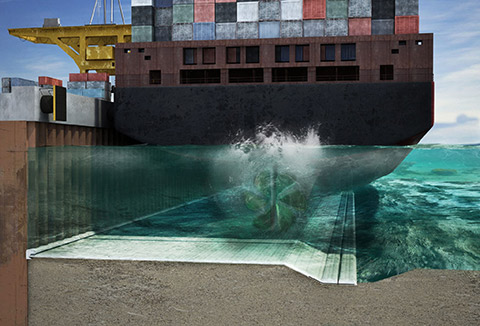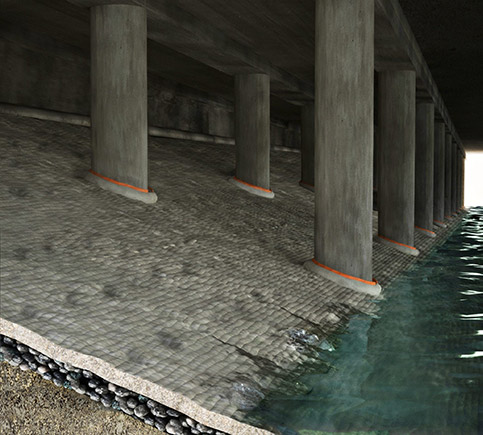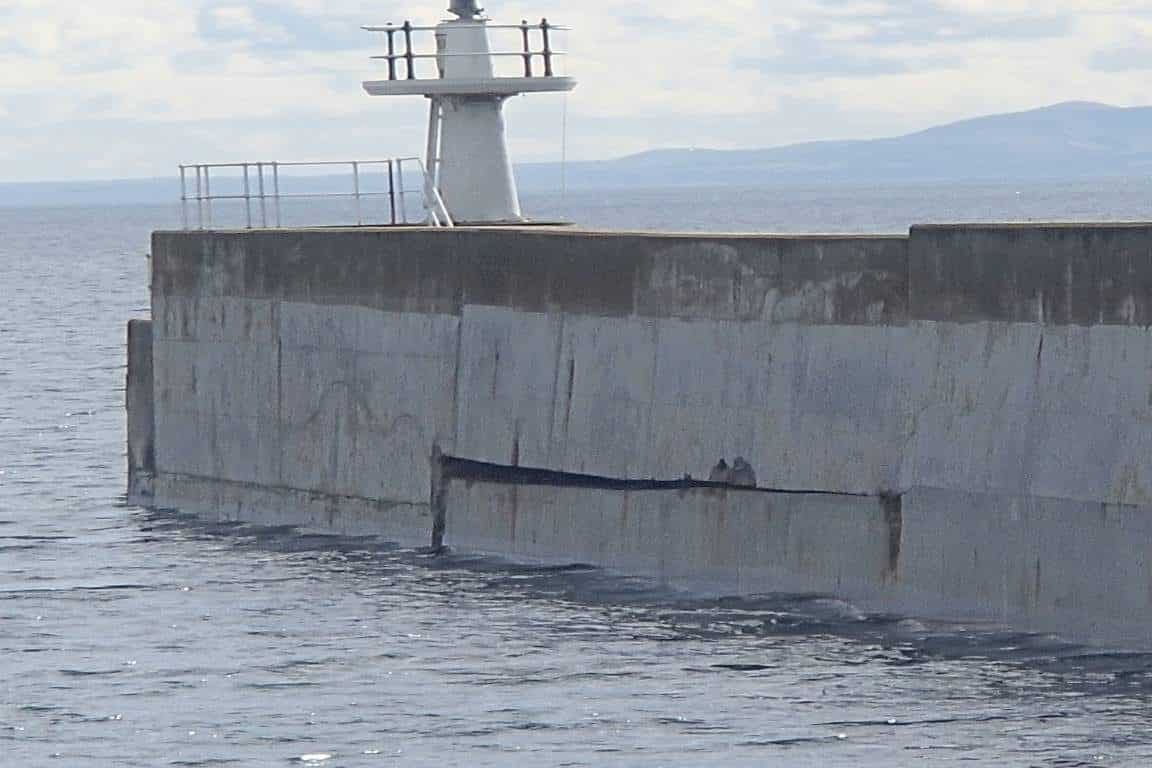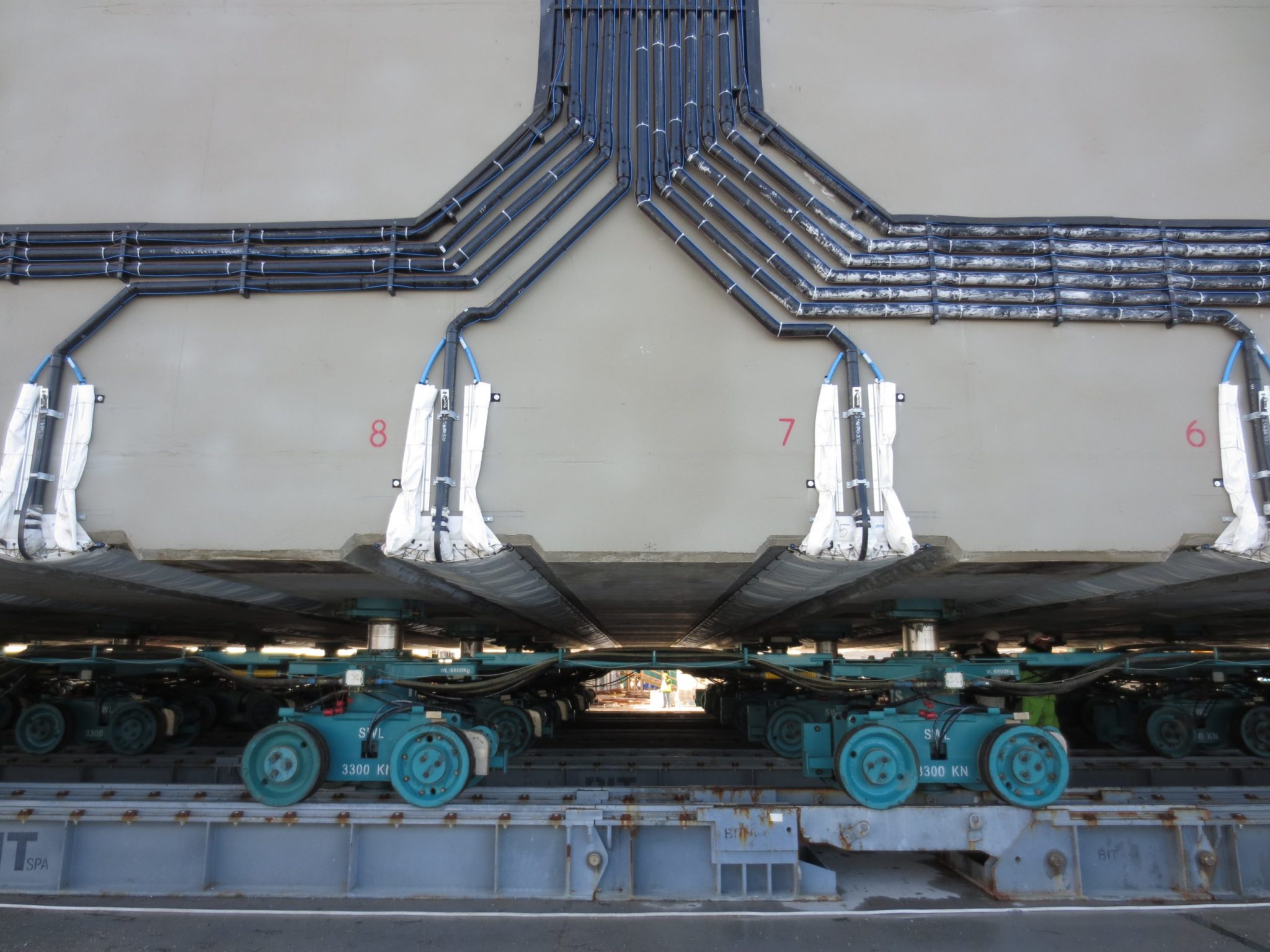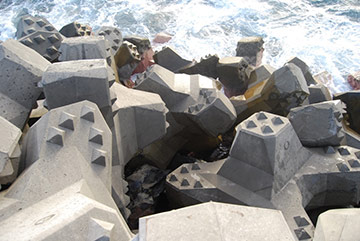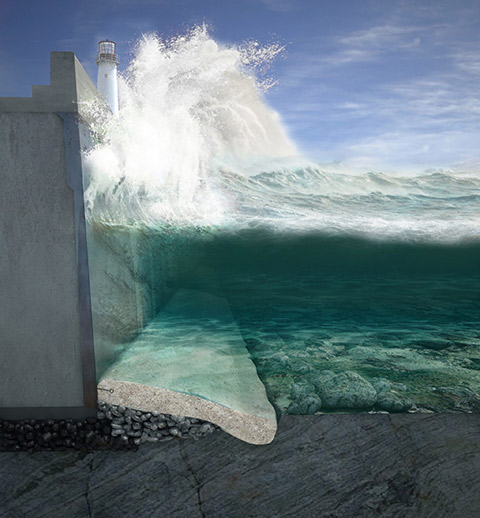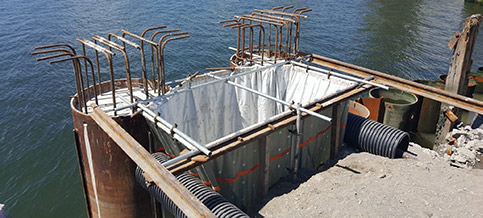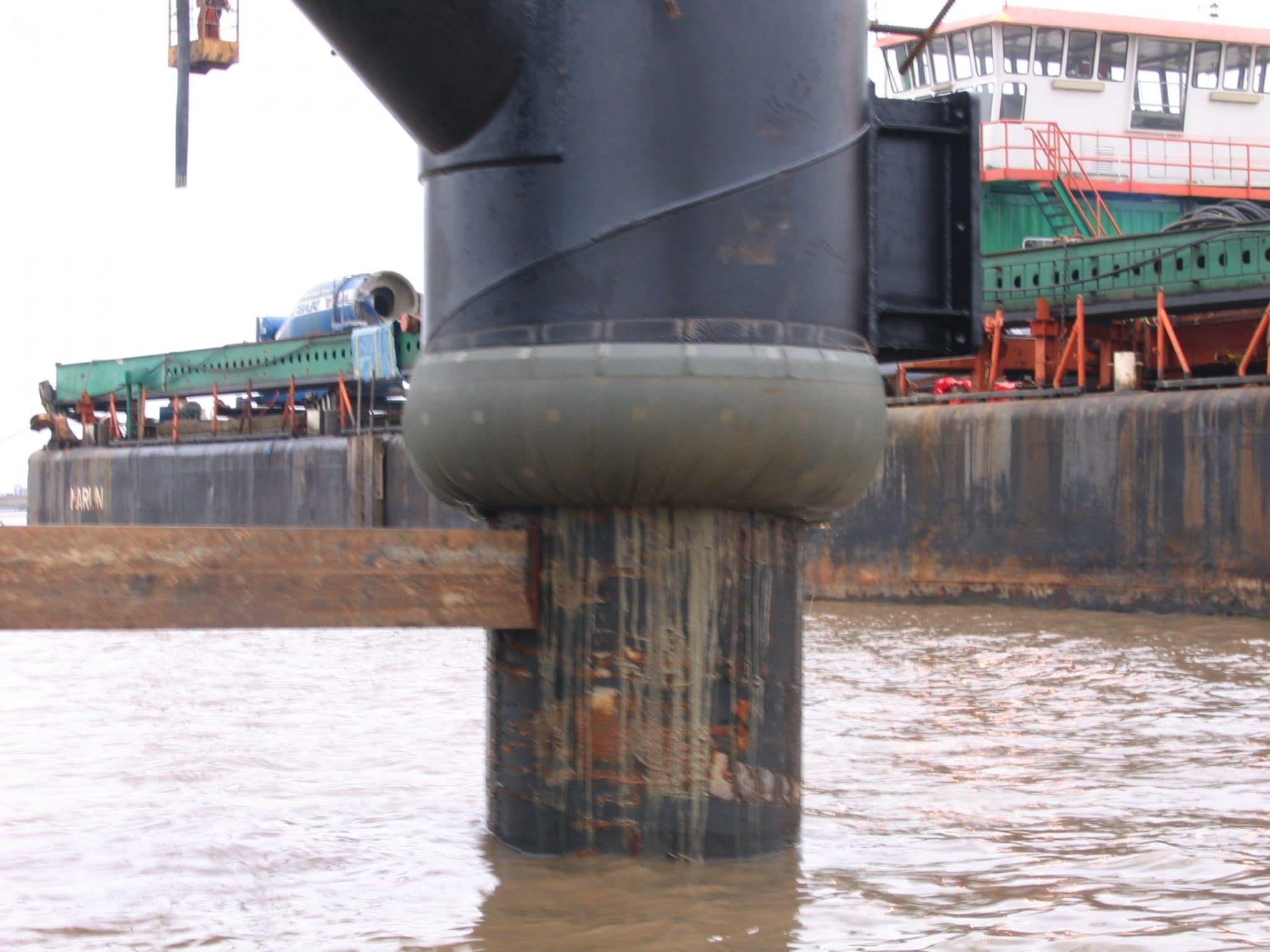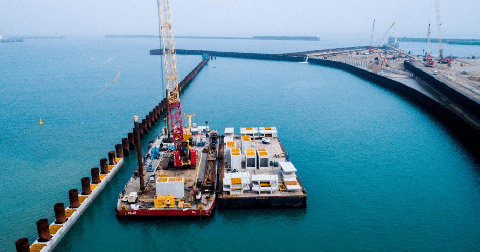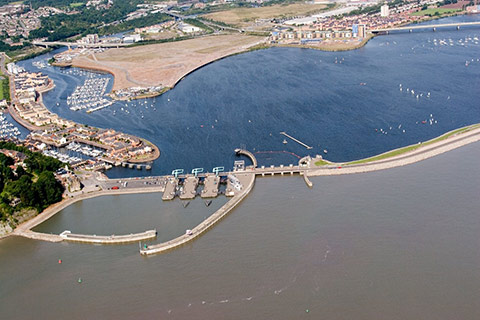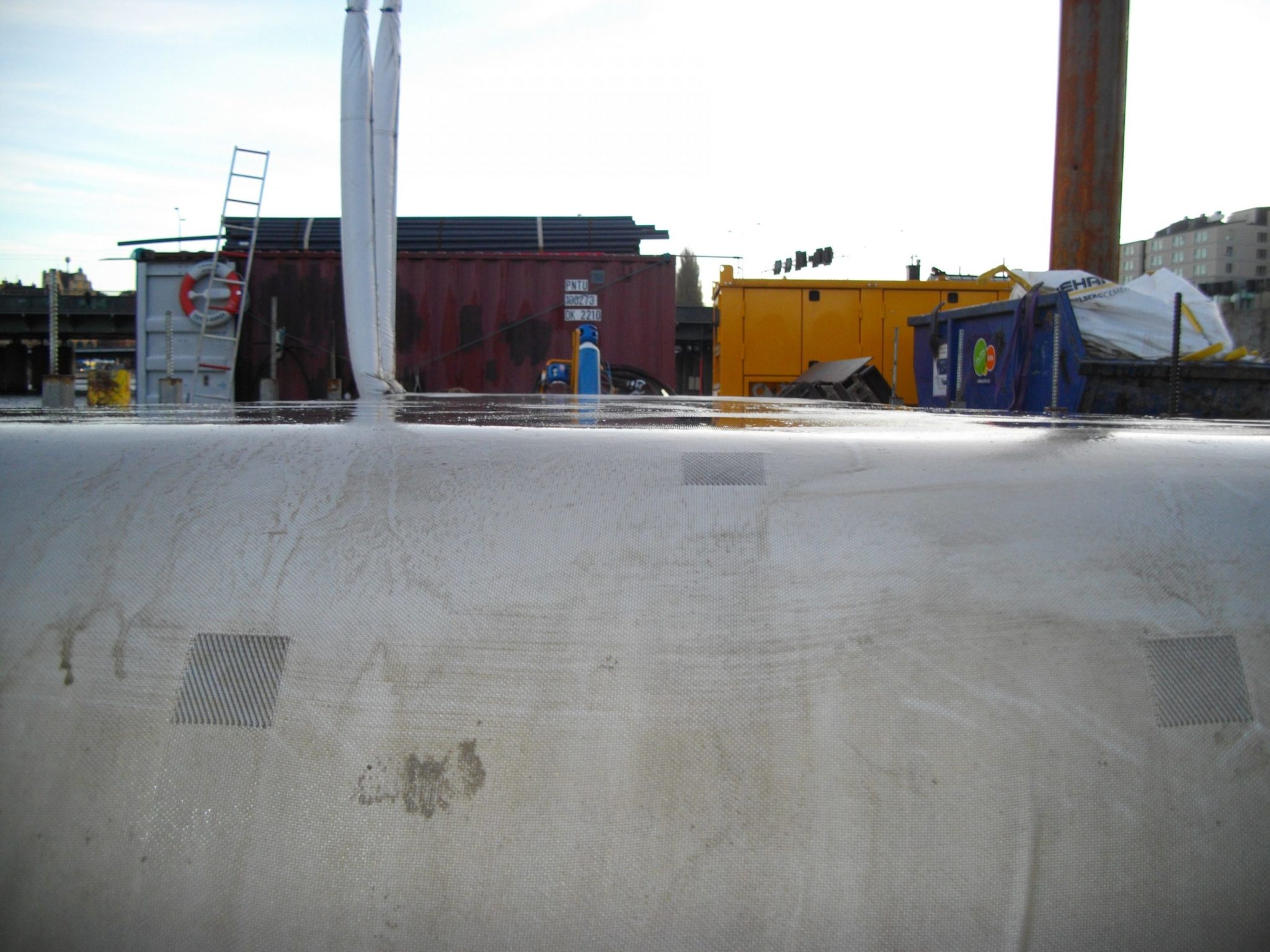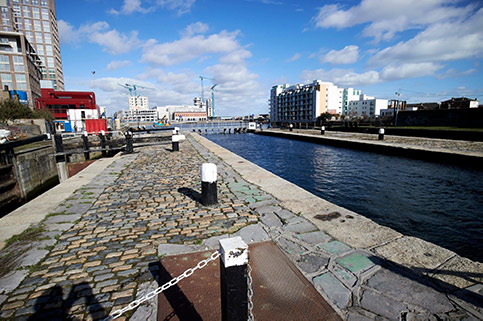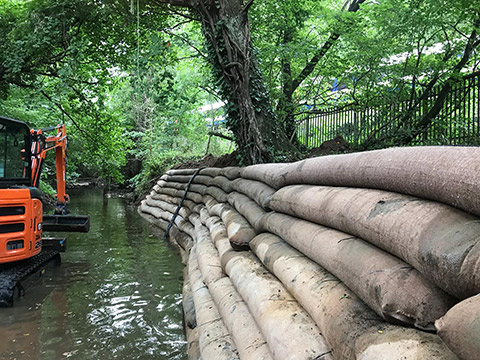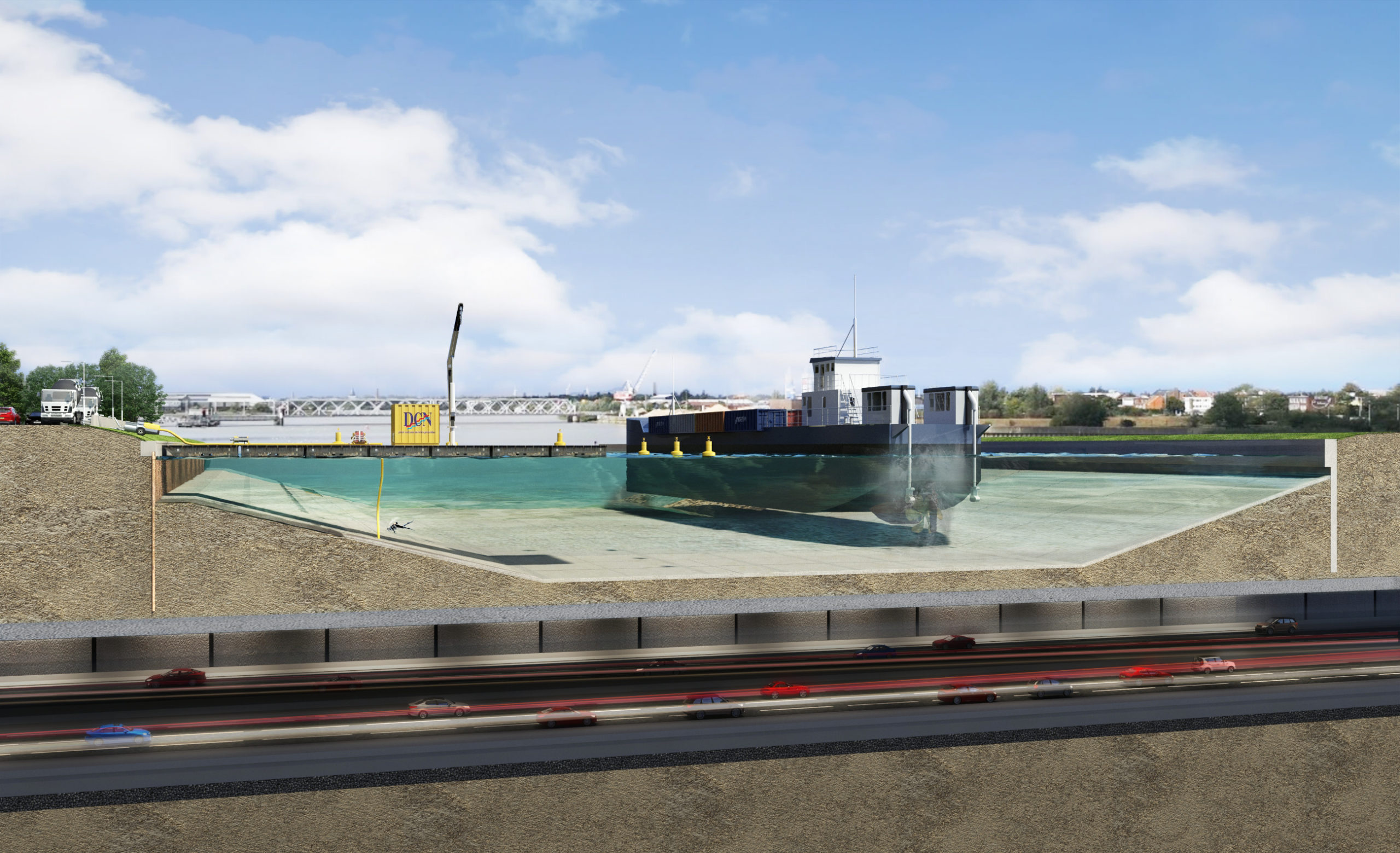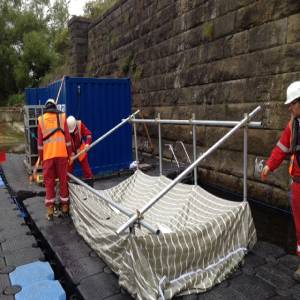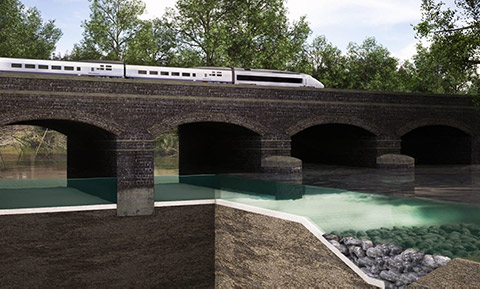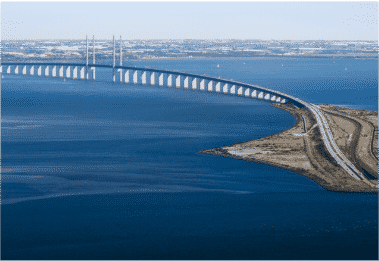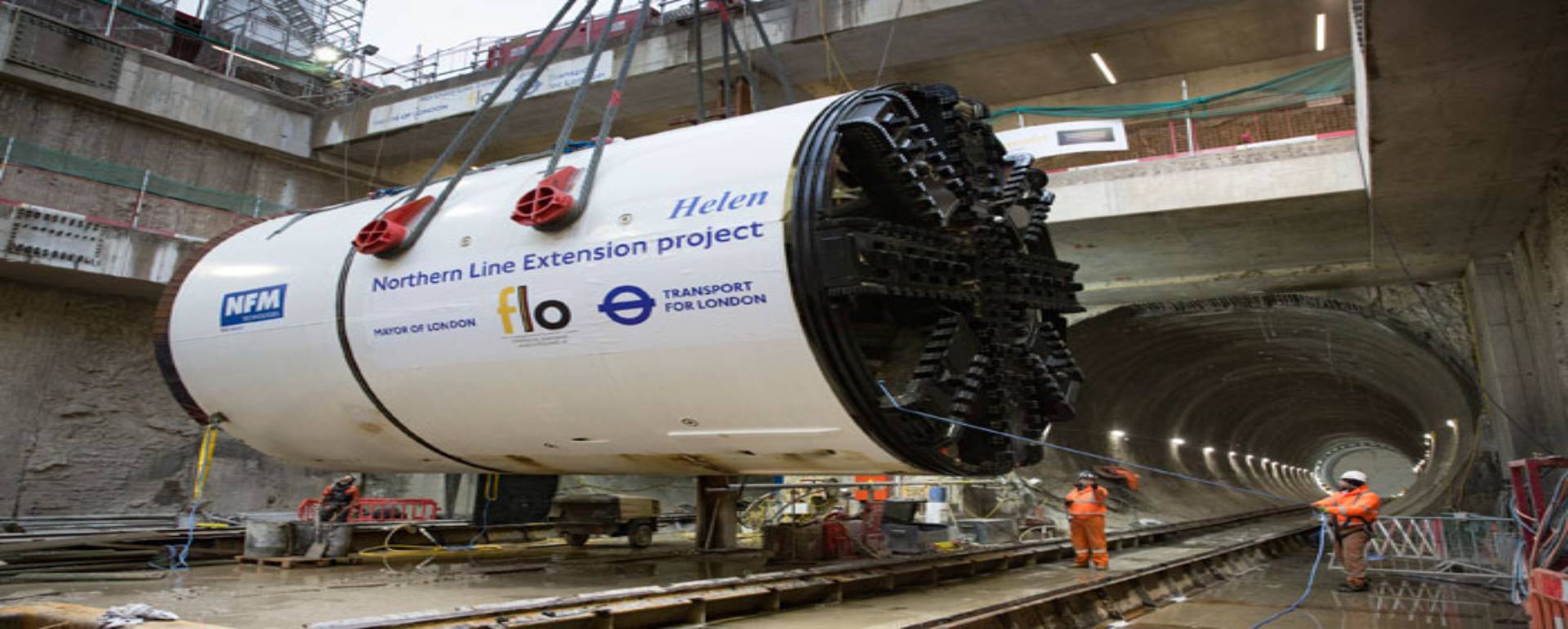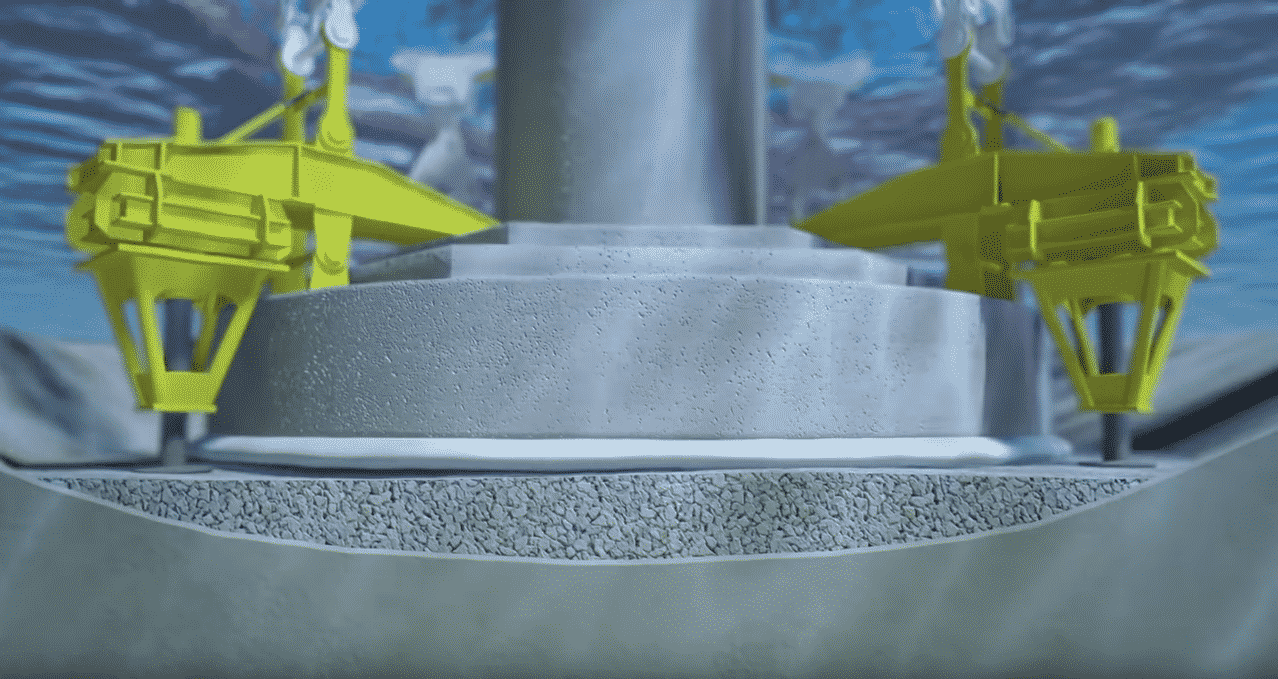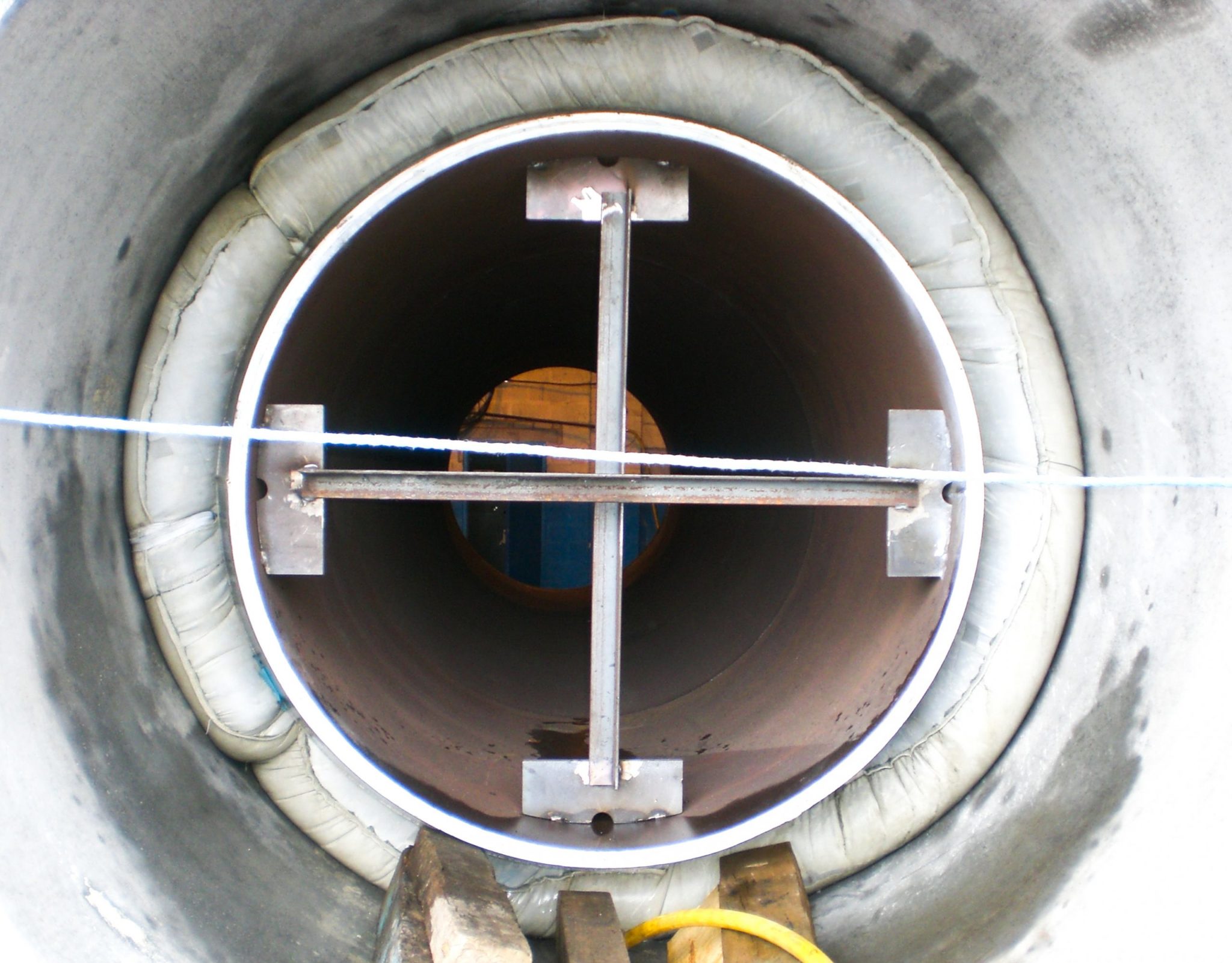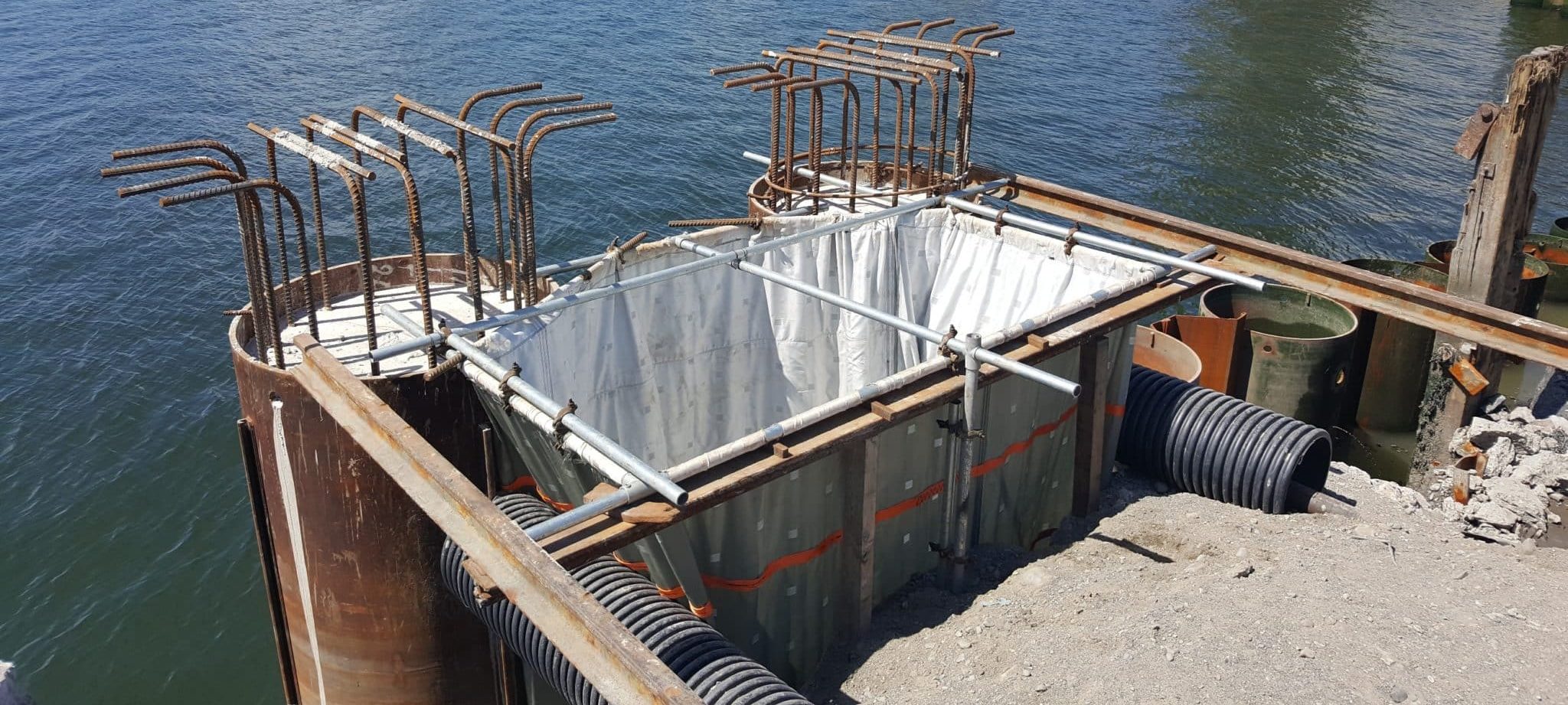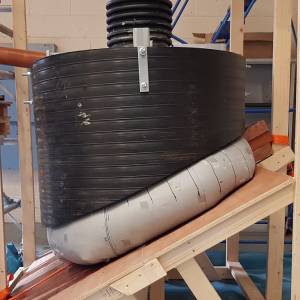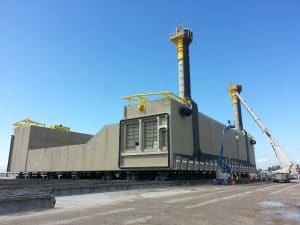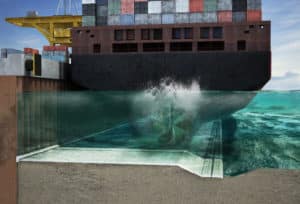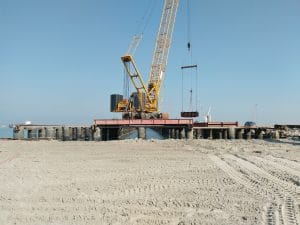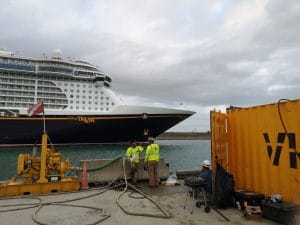Fabric Formed Concrete
Installation can be undertaken in air or in water, as can filling, with no loss of concrete quality when carried out in accordance with our guidance. In fact, due to the benefits of curing in water and the highly water permeable nature of our formwork, we can frequently achieve higher quality concrete underwater than in air.
Our Expertise
Over 50 years we have developed a deep understanding of the forces and effects to be controlled for successful installation of fabric formwork. The process of grouting fabric formwork means that once the filling process has begun it must be finished while the concrete is fluid, or the formwork may not achieve its required profile.
Installation Partners
We train local installation teams who are already experts at construction in the local environment in the specifics of creating fabric formed concrete to their projects requirements. Through this approach we combine our complementary capabilities, providing expert advice ensuring controlled construction and successful installation.
Modes of Installation
To facilitate installation we have developed a number of innovations, such as the use of remote grout sensors to detect when filling is complete, prefixed and condensed formwork options which allow formwork to be placed in small recesses, protected from later construction processes before being filled and developing out from the recess to take the required shape.
Depending on the requirements of the project, installation can be diver dependent (most concrete mattress projects) or diver free (most condensed and pre-fixed projects).
Prefixing
Prefixing of fabric formwork can simplify the construction process and increase reliability of the final concrete formation. Prefixing can save challenging diver work and it can take place before other construction stages make access impossible. The prefixing provides all the restraint that the fabric formwork will need for position control during filling.
Prefixing of fabric formwork often requires it to be condensed and protected from other construction processes before it is filled. Condensing can occur with simple tags or full covers designed to break open during filling. The covers can be made with fire-resistant fabrics should hot works around the prefixed formwork be a possibility.
We first undertook a condensed seal in a break-cover on the caisson seals at Dubai Dry Docks in 1976 and have been developing and applying the technique to other projects ever since.
Grout Sensors
Where fabric formwork is prefixed and access is not practical to determine filling progress or completion, we make and supply grout sensors to detect the presence of grout compared to air, sea water or fresh water. These grout sensors can be prefixed in known locations in the fabric formwork and provide real time feedback as to the progress of filling. They have been used successfully on several large-scale projects.
Placing Underwater and Restraint
Fabric formwork systems are commonly installed underwater by divers. The installation method is carefully planned and practiced so that the divers can place the fabric formwork in the correct position and adequately restrain it before filling.
Preparation work is carried out to the extent possible on land to facilitate the diver work underwater and expedite construction. Preparation work in air can include prefixing restraint tubes, attaching diver navigation aids, rolling up onto pipes for simple roll out onto the bed and more. Preparation work in water can take place off the critical path and often consists of ensuring bed levels are appropriate, free of obstructions or silt and that restraints are installed.
Mesh Frames
Mesh frames can provide further versatility in fabric formwork placement and restraint, especially where other forms of restraint are not available or sufficient. The fabric formwork can be prefixed to the mesh frame in air, the whole assembly can then be dropped into position, filled and if required, removed for reuse. Depending on the type of mesh frame used, they can be single use and left in place, or designed for re-use after each pour has reached initial set.
We provide designs for mesh frames for fabric formwork fitting, restraint and filling pressure support, which contractor’s take for detailing, lifting design and manufacture to suit their equipment and requirements.
Preparation and Support
We support the installation contractor to prepare for successful installation from the early stages of the project, right through until construction is completed.
Our initial preparation works focuses on identifying the principal risks to successful construction followed by planning and implementing activities to mitigate these risks. We detail the construction sequence required and train the installation team in the sequence and contingencies.
As part of this process we ensure that the fabric formwork can be positioned and restrained to suit the specific project conditions, including:
- Access
- Currents
- Slopes
- Visiting vessels
- Waves
- Soft beds
We develop a robust filling plan specific to the concrete and plant available to fill each formwork element in a single pour, allowing for the working conditions with a margin for unforeseen events thereby avoiding the risk of rupture. We train the installation team with demonstrations using all the proposed equipment, preparation visits, detailed guidance and on-site support during the initial stages.

